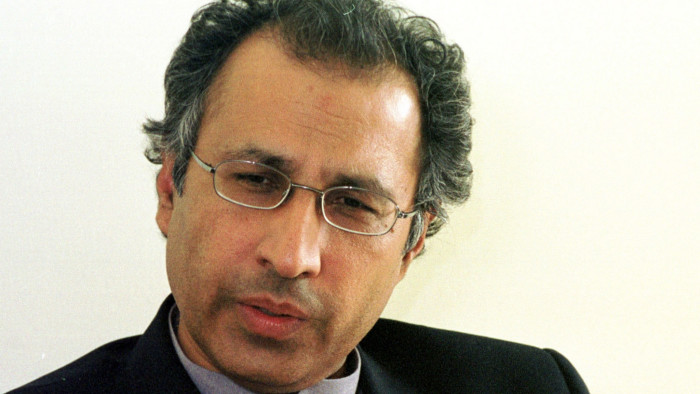Saudi Arabia grants $9.6bn payment holiday to Pakistan

Roula Khalaf, Editor of the FT, selects her favourite stories in this weekly newsletter.
Saudi Arabia will defer demand for payments for oil shipments from cash-strapped Pakistan as Riyadh seeks to cement regional alliances against a backdrop of escalating tension with Iran.
Pakistan finance official Abdul Hafeez Shaikh announced on Wednesday evening that Saudi Arabia would postpone demand for payments of $275m a month for the next three years, totalling $9.6bn. “This will strengthen Pakistan’s balance of payments position,” Mr Shaikh posted on Twitter.
Pakistan is facing a fiscal crisis, with weak growth, rising inflation and dwindling foreign exchange reserves that barely total enough to cover two months of imports. Prime minister Imran Khan’s government reached a preliminary agreement on a three-year $6bn bailout with the IMF this month that comes with the requirement to implement harsh structural reforms.
The Saudi payments deferral follows Riyadh’s decision in October to grant a $6bn loan to Mr Khan’s government in October 2018. Half of that loan was used as temporary relief to boost Pakistan’s sagging reserves, while the other half was earmarked for oil payments for the fiscal year ending in June.
The announcement comes as Saudi Arabia is working to strengthen its position in the region following a rise in decades-old hostility between the US and Iran, and ahead of this week’s scheduled visit to Pakistan by Javad Zarif, Iran’s foreign minister.
“The timing is very critical. The conflict matrix of the region and rising tension is once again creating politics of alliance,” said Huma Baqai, a professor of international relations at the Institute of Business Administration, Karachi. “The payment deferral is largely to keep Pakistan in the Saudi Arabia-US camp.”
Pakistan has officially said it is neutral on the Iran-US issue. Shah Mehmood Qureshi, the country’s foreign minister, said last week that Islamabad would “not join any camp in case of a conflict”.
If tension spirals out of control, Saudi Arabia may lean on Pakistan for security support, said Zahid Hussain, Pakistan author and political analyst. “Saudi Arabia has always seen Pakistan as part of its security network, including its nuclear weapons,” said Mr Hussain. “Riyadh will expect Pakistan to come to its aid if there is a flare-up in Iran.”
The US could also be using Saudi Arabia to press Pakistan into helping deliver a lasting peace agreement with the Taliban in Afghanistan, said Asfandyar Mir, South Asia analyst at Stanford University. “Pakistan can definitely ramp up the pressure on the Afghan Taliban,” said Mr Mir. “Things are not looking good and I think the US wants Pakistan to do more.”
The last time Riyadh struck a similar deal with Islamabad was 21 years ago, when Pakistan was hit by global sanctions following its first nuclear tests.
A separate oil payments deferral with the UAE appears to have been scrapped, according to a senior government official, declining to give a reason for the decision. The official said he expected the UAE to lend another $1bn by the end of June, bringing the total amount of UAE support in the current July to June financial year to $3bn.
Comments